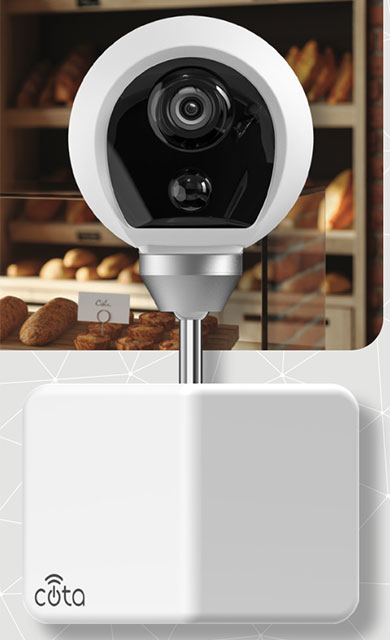Microsoft just announced that it’s putting generative AI into Windows 11, but we are still at the very beginning of the changes access to this technology will bring.
Some jobs will get easier, some more valuable, and many will become obsolete. No matter what you do for a living, there is a good chance AI, specifically generative AI, will significantly impact both what you do and how you do it.
Changes like this create tremendous opportunities and huge threats. There will be risks associated with moving into this technology too soon or too late. Like the introduction of computers, generative AI is a force multiplier, meaning that those who know how to use it effectively will have increasing value, and those who don’t will not be able to compete.
Let’s look at five areas that will be changed dramatically by the influx of generative AI, some potentially for the worse. Then we’ll close with my Product of the Week: the first truly wireless security camera — with wireless broadcast power — to hit the market.
News
The issue with news is two-fold.
First, generative AI can write news articles, but it will do so using the information it can access. As the population of professional news reporters declines, citizen-sourced content will increase in relative percentage, and that content has proven relatively unreliable over time.
AI can’t go out into the field yet to witness events; it only interprets or repeats what others have observed. It is a tool best used to punch up a story or make it easier to read, but it can also create stories, and that is where the second issue becomes a problem. I believe this can be addressed algorithmically, but if the motivation is revenue and not accuracy, the trend, which some would argue is already troubling, could worsen.
The second news-related issue is that AI will have an increasingly significant role in Journalism. However, the AI will likely prioritize site traffic and attempt to please users, much like you’ve seen your feeds on social media get modified to hold your interest. Stories you may need to know about might give way to stories you enjoy more, as the AI, in its attempt to make you happy, creates stories to feed happiness, regardless of the validity of those stories.
To be fair, no news organization will survive if they have content people don’t want to see. However, assuring that this pivot doesn’t increasingly divorce users from reality will be a challenge. As suggested in a 2016 book by Lance Elliott, the fix might be an “AI Guardian Angel” to ensure your best interests are always protected. The AI Guardian Angel idea has also been proposed more broadly to protect against the likely emergence of hostile AI.
Books
We’ve seen that generative AI can write books. We also know those books are bad without a lot of oversight.
You still need to define the characters, build the world, and then forge a path for the characters you’ve created to navigate that world so that it is interesting to the reader. Now, the reader could do that last part. For instance, wouldn’t it be interesting if you could read a book with adventures about how you’d survive in the world of Harry Potter or how John Wick might interact in that world?
In the future, authors may define worlds and characters, fully fleshing them out, and then you’ll buy access to those worlds and characters to create a story uniquely yours which you could then resell or enjoy personally.
Some revenue-sharing aspects would need to be worked out if you resold the result. Still, most of us would likely just create content we’d personally enjoy or share with close friends, mitigating the need for full licensing and monetizing the result.
For instance, I’m currently hooked on LitRPG books, which are written in a video game universe where the characters level up over time and progress through assigned missions. These books are iterative, and too often, an author will stop writing a series before wrapping it up or before I’m ready to give it up.
With generative AI, not only could I change parts of the book I don’t like and enhance parts I do, but I could also create sequels that otherwise wouldn’t exist, which is helpful if the author dies and, if done correctly, I’d still pay the author or their estate for the privilege.
Currently, some publications are already overwhelmed with generative AI content. While this is one of the initial pain points, assuring the quality of these written works now becomes a far more difficult task.
TV and Movies
The script part of the process would follow from the book concept as described above, but then you could turn to technologies like deepfakes and Nvidia’s Omniverse to flesh out the movie and create a relatively high-quality, animated interim product that could, for some, end up being final, and for others could be simply another step to assure the quality of the outcome.
As this technology matures, your ability to go directly from script to final product will advance. The ability to create high-quality movies with extensive special effects for a few bucks would also increase substantially. With streaming, a service like Amazon could charge either a subscription or a fee to create exactly the movie you want to see when you want to see it.
No more waiting a year or two for sequels. You could have a sequel every night of the year until you got sick of the same storyline. Much like YouTube content today, you could have your own series that others could watch for a fee, and if done right, there would be revenue-sharing for all parts of the production.
The real issue has to do with movie theaters. It isn’t clear how you’d deliver this customized experience to a large group unless it were interactive and the group’s individuals could take some control of the action. The result would be new content that could be distributed again through screening, leaving it up to other users whether they wanted to see the result.
Actors would license their appearance and create acting templates for a variety of characters that, for a fee, users would place in their streamed productions for individual use. At the same time, theaters might have a set group of pre-paid actors and a more defined space in which to place them where the audience can interact with their favorite characters and possibly even guide them.
One interesting aspect is that I’m sure we’ve all sat in movie theatres where someone is vocal about what the actor should or should not do. In this context, the virtual actor on screen could react to those vocal comments. “Could the lady in the third row in the white dress quiet down? I’m having trouble thinking!” or “Thank god you warned me not to go into that room. I would have died!” etc.
AI could significantly increase audience engagement and make a theater experience much more social than it is now. Granted, this could also become annoying if done wrong but changing the theater experience to more of a social event could make going to theaters a lot more fun than it currently is. Ever been to a “Rocky Horror Picture Show” event? They are a ton of fun.
Education
We don’t learn well generically. Some of us learn by doing, some by being shown, and some learn best from people they trust — and this isn’t an extensive list of our differences.
With generative AI and some initial work to determine how a child learns best, a course could be defined by those requirements. A virtual theater, which might take the form of someone’s parent, could then provide a customized class that is optimized for how the child learns best.
Teaching pivots from one-to-many to one-to-one, and every child gets personal attention from the AI, which can go home with them and help with homework virtually. This would be a massive improvement for those learning from home as the AI can change its approach dynamically to ensure the student understands the requisite material. Since AI is a machine, the risks of abuse, bias, prejudice, and lack of adequate oversight are largely overcome.
Goals would change from just completing the course of study to transferring the knowledge. Rather than mostly being glorified babysitters, schools could evolve into places of education again. Those who don’t like reading could get AI-generated representations of the course material using a blend of upscaled videos and rendered content.
Because the AI constantly engages the student’s behavior, problems like acting out and depression can be more aggressively addressed and rapidly flagged if the student starts spiraling into negative territory. You’d still need oversight, but the teacher would be there to ensure the process and wouldn’t need to teach so much as provide assurance the system was working as intended.
Course material could be as long or as short as needed. If a student progresses rapidly, the curriculum will support that rapid advancement. If the student were struggling, the course would slow and bring other resources to improve the student’s performance.
Wrapping Up
Generative AI will, to some degree, change much of what is around us. Initially, written content will see the most significant change, followed by short-form video content and, finally, commercial TV and movie productions. Most of this should happen within the next ten years, with the written changes happening relatively quickly and movie, TV, and education advances happening later.
By the end of this transition, likely sometime in the mid-2030s, how we create and consume content will have dramatically changed. It will be far more customized and personal, and the consumer of the related media will provide significant direction to the final product.
One of the problematic parts that will undoubtedly take a while is the licensing of the related material to make this all happen. If we don’t have a solid licensing program in place, creative types that we’ll need to build the elements of this new AI world will likely drop out of it for lack of payment, dramatically reducing the quality of the result.
The critical path to getting this right is to ensure a revenue model that keeps the creators whole.

Archos Cota Wireless Power Security Camera

We live in a hostile world. Where I live, we seem to have too many folks who like to steal from others, which has become a severe problem.
I have 14 cameras around my home, but while away on our last trip, one stopped working because the gardener accidentally cut its power cord. While wireless cameras are nothing new, getting power to a wireless camera can be a problem.
Well, last week, Ossia announced its Archos Cota Wireless Power Security Cameras.
Provided the cameras are within 30 feet of the power hub, they will continue to operate without needing to be plugged in or in line of sight of each other. Data from the camera is Wi-Fi compatible, allowing you to hook it into your company or home network (the camera’s target markets are home and business).
Initially, these cameras will come in commercial bundles. I estimate the price of the cameras and bundles to be more in line with how Archos prices its cameras — figure in the $200-$300 range per camera.
The bundles depend on the size of the area you need to cover. Initially, those bundles are in two forms. For sites between 600 and 800 square feet, you get one Cota Transmitter (for power) and three cameras. For sites 800 to 1,200 square feet, you get twice that.
I’m guessing prices for the bundles will be around $1,200 and $2,400, with additional discounts likely for the larger bundle to create an incentive to buy it.
I think it would be incredibly useful to be able to put a camera any place without thinking about how to power it. As a result, the new Archos Cota Wireless Power Security Cameras by Ossia is my Product of the Week.


























































